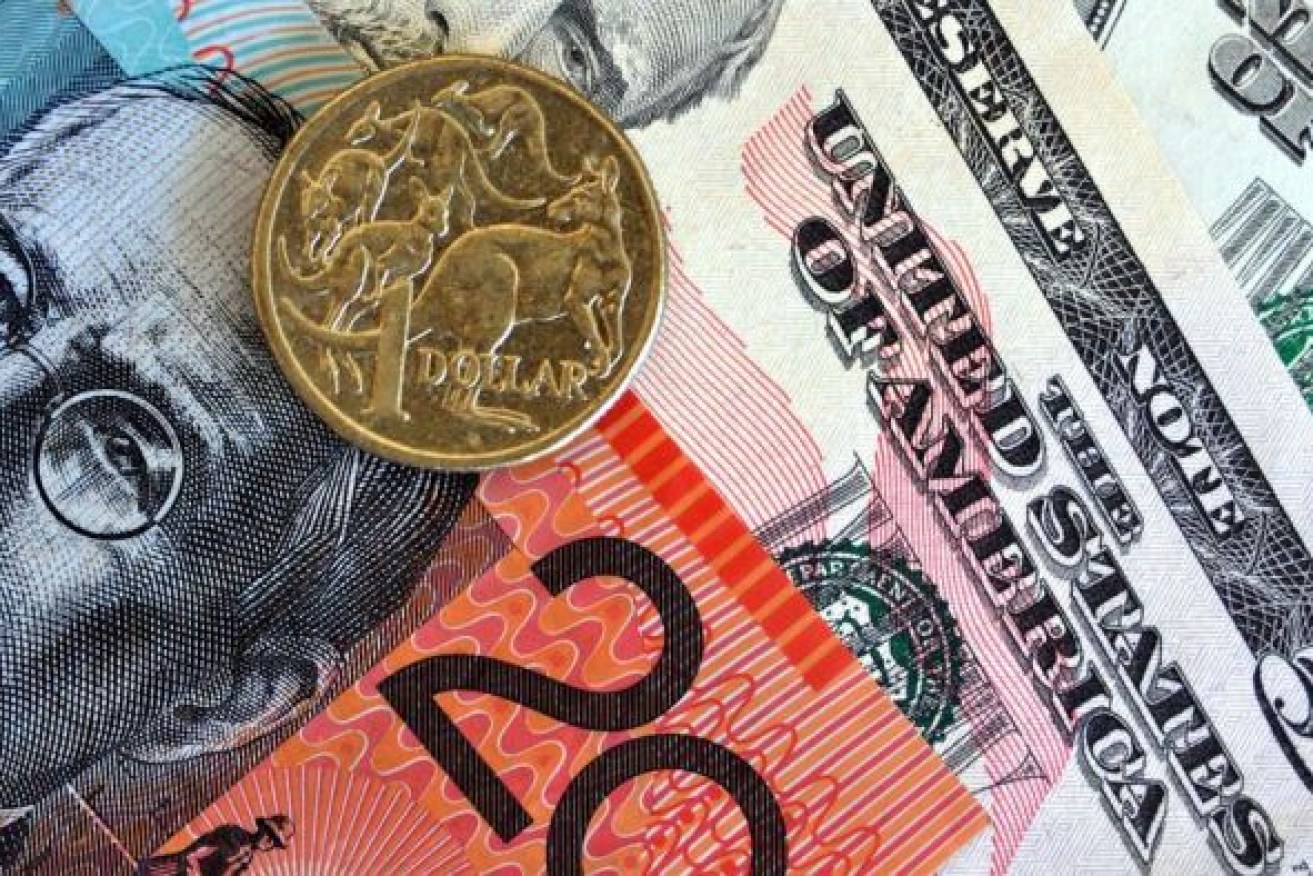Banks sued for rigging Australian dollar and other currency exchange rates

The alleged rate-rigging occurred via phone calls and secret online chat rooms. Photo: AAP
The world’s largest investment banks – UBS, J.P. Morgan, Citibank, Barclays and the Royal Bank of Scotland – have been sued for allegedly rigging currency exchange rates.
Law firm Maurice Blackburn has accused the banks of engaging in illegal cartel conduct between January 2008 and October 2013, according to the Federal Court class action it filed on Monday.
The alleged rate-rigging occurred via phone calls and secret online chat rooms using names including the “Cartel”, “Bandits’ Club”, “Mafia”, “Three Musketeers”, “A-Team”, and “Three Way Banana Split”.
As a result, the banks “artificially increas[ed] the cost of buying certain currencies and artificially decreas[ed] the price received when selling certain currencies”, Maurice Blackburn said in a statement.
These currencies include the Australian dollar, British pound, Canadian dollar, Chinese yuan, Euro, Indian rupee, Japanese yen, US dollar and more than 20 others.
Lawsuit open to those who spent at least $500,000
“Australian businesses and investors – particularly medium to large importers, exporters, institutional investors and businesses with operations overseas – have been affected by the distortion of the FX market by these banks,” Maurice Blackburn principal lawyer Kimi Nishimura said.
“Such cartel behaviour cheats Australian businesses in circumstances where they may already have been vulnerable to currency fluctuations.”
The plaintiff law firm said its class action was open to any customers who bought or sold currency through foreign exchange spots or forwards between January 1, 2008 and October 15, 2013.
However, the total value of their transactions needs to exceed $500,000 during the period.
The lead plaintiff in this case is J Wisbey and Associates, a Sydney-based company that imports dental and medical equipment under the trading name Wisbey Dental.
“It’s hard to take individual action against this kind of price rigging because the price increases are small. But when repeated over thousands of transactions, they make a real difference to currency prices,” the company’s managing director Greg Wisbey said.
“I rely on forex trading because my business needs to trade with international companies.
“But to have been subjected to an uneven playing field and paying an inflated price for no good reason, well that’s just unfair and hurts Australian businesses like mine.”
Billions in fines already paid
Over the past decade, the five investment banks have been fined billions of dollars across the world for rigging benchmark rates on the foreign exchange market.
They have admitted to US and UK regulators that their traders attempted to manipulate foreign exchange rates as part of a cartel.
In mid-2015, the five banks – along with Bank of America – were fined nearly $US6 billion for rigging Libor, the global commercial interest rate benchmark used to peg millions of rate-sensitive contracts and loans around the world.
The biggest fines were paid by Barclays ($US2.38 billion), Citigroup ($US1.27 billion) and J.P. Morgan ($US892 million).
More recently, on May 16, the European Union imposed a combined €1.07 billion euro ($1.73 billion) fine on Barclays, Citigroup, J.P. Morgan, RBS and the Mitsubishi UFJ Financial Group for manipulating spot exchange rates in relation to 11 currencies.
It was the result of a five-year investigation, in which nine traders across two cartels were accused of exchanging sensitive information and trading plans via online chatrooms.
UBS, however, was not fined because it alerted the European Commission about the cartels.








